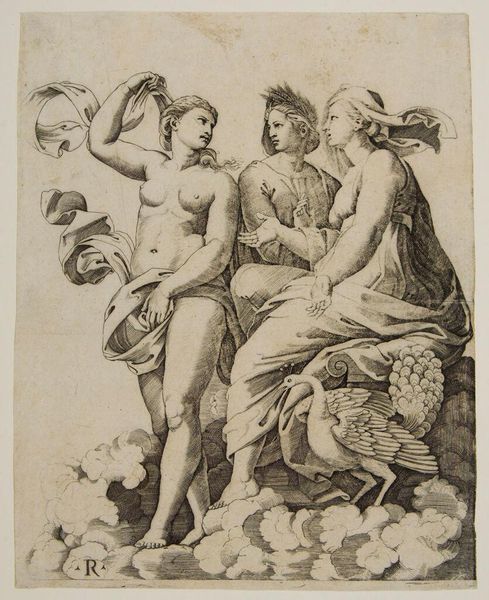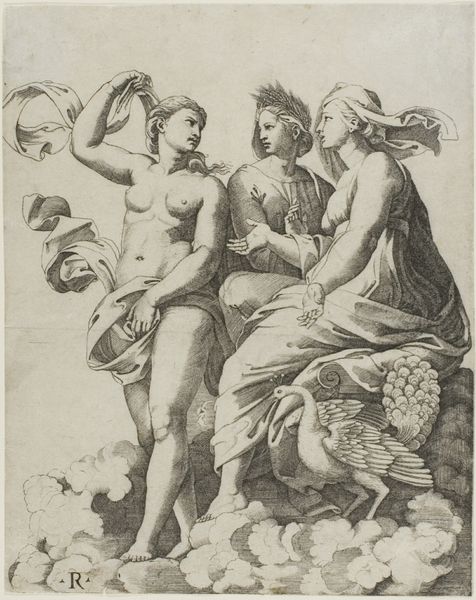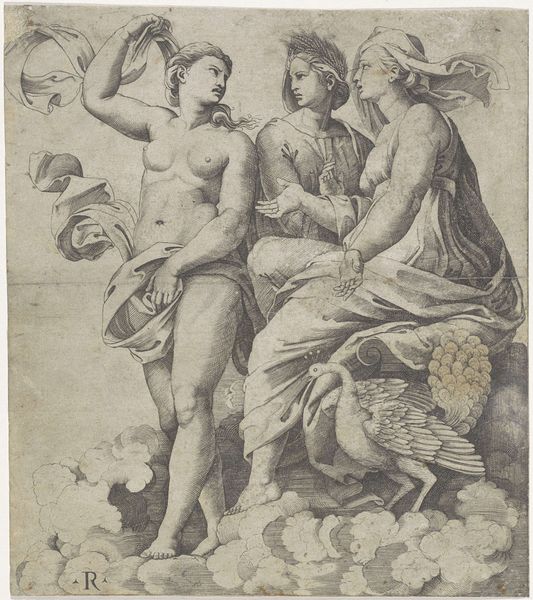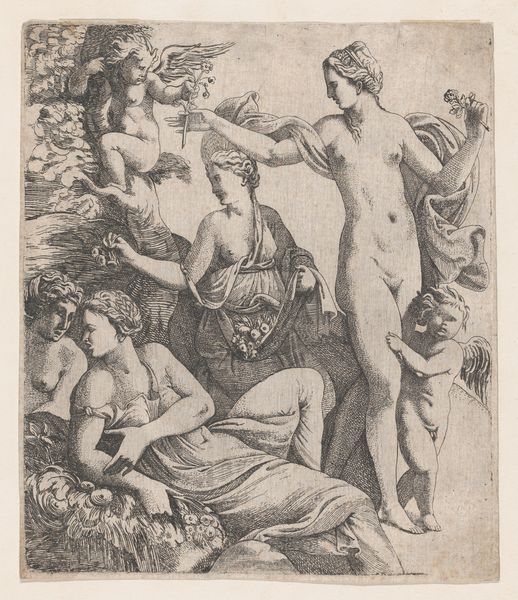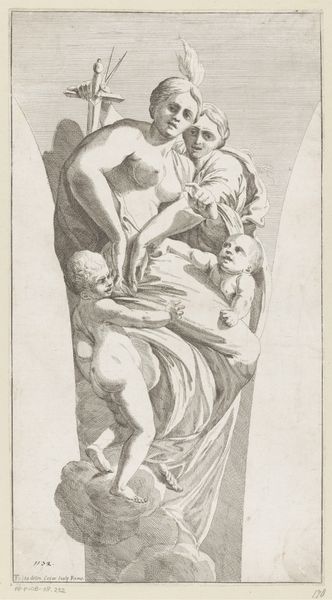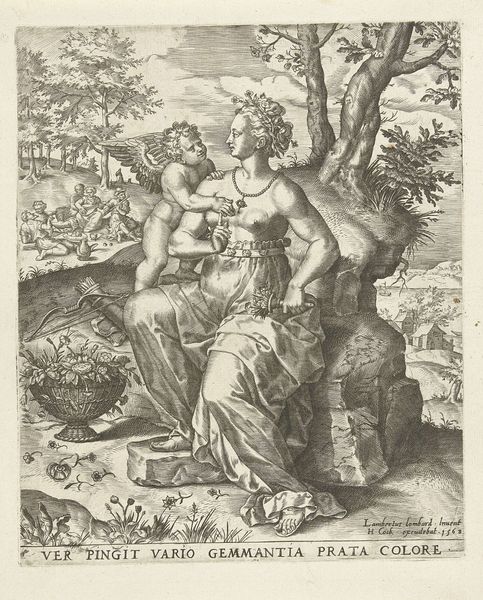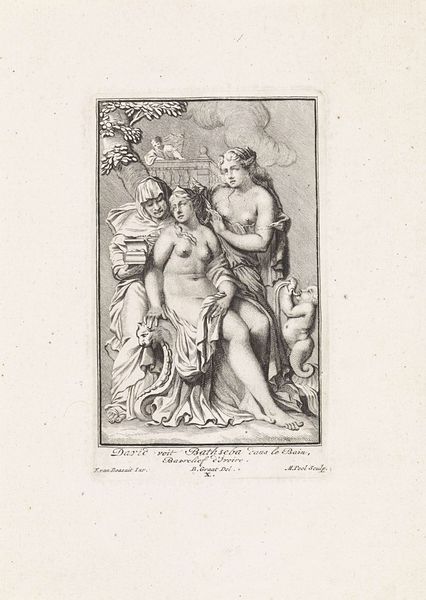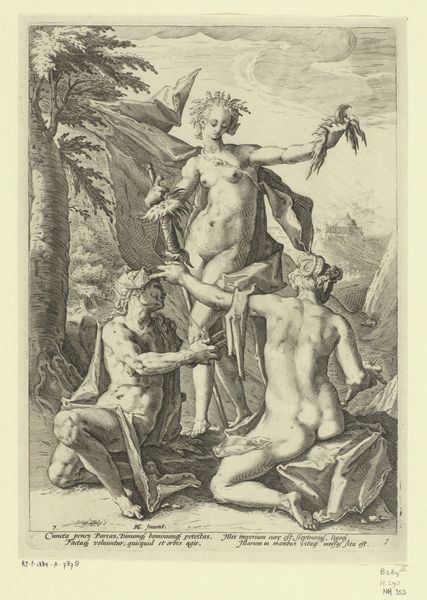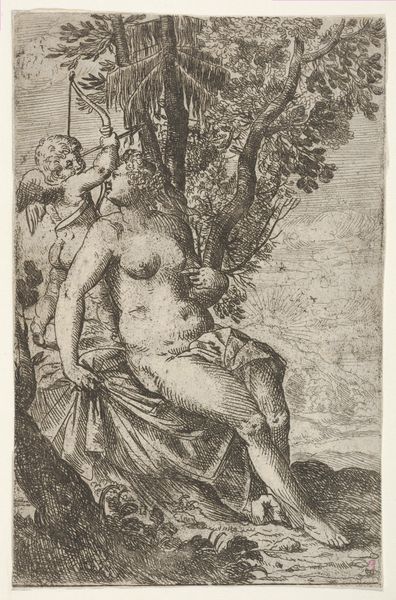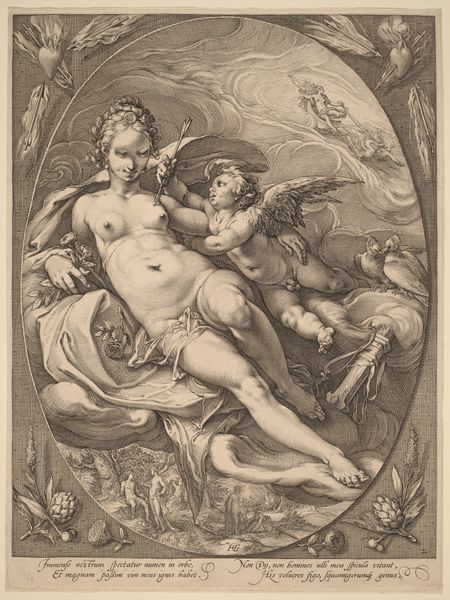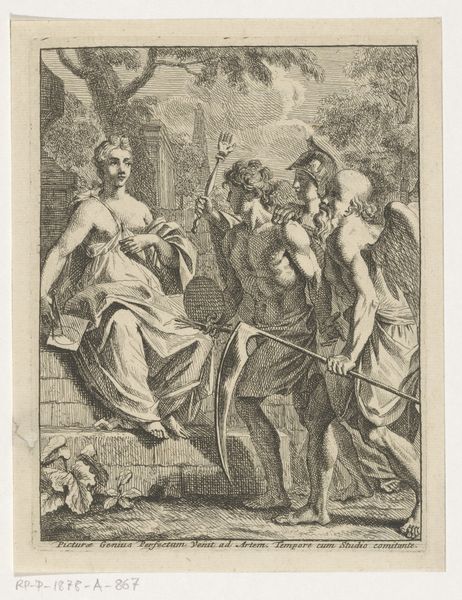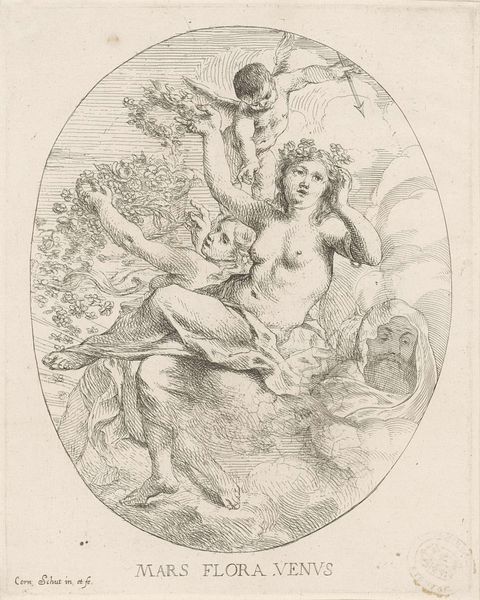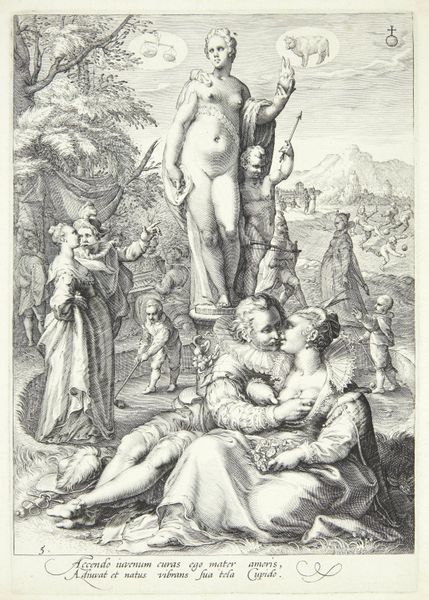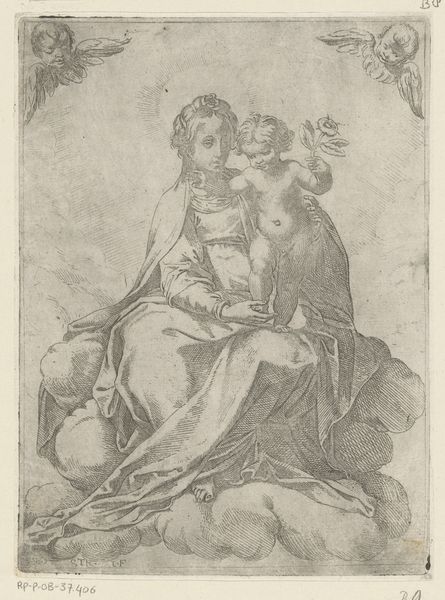
drawing, print, paper, engraving
#
drawing
#
allegory
# print
#
figuration
#
paper
#
framed image
#
history-painting
#
italian-renaissance
#
italy
#
engraving
Dimensions: 267 × 202 mm
Copyright: Public Domain
Editor: This is "Juno, Ceres, and Psyche," an engraving by Marco Dente dating back to around 1518. It strikes me as very poised and allegorical; the figures seem caught in a moment of frozen narrative. How do you interpret this work? Curator: This engraving offers a window into the complex social and philosophical landscape of the Italian Renaissance. Dente is drawing from a rich tapestry of classical mythology, but the decision to depict these goddesses—Juno, Ceres, and Psyche—together is fascinating. How do you see these figures in relation to each other? Do they represent distinct facets of the female experience, or a more unified concept? Editor: That's a great point. Psyche is standing semi-nude and appears to be veiling herself, Ceres looks like she is making a plea, and Juno appears to be sitting down on a bird; could this suggest a hierarchy between earthly, personal needs, and higher calling or reason? Curator: Exactly. Now, consider the role of printmaking in the 16th century. Engravings like this weren't just artistic expressions; they were vehicles for disseminating ideas and imagery. Dente is participating in a visual discourse about female power, divinity, and the very nature of beauty at a time when women's roles were rigidly defined. Think about the accessibility of this image – how would it have been viewed differently by different social classes or genders? What tensions do you think that would expose? Editor: It’s incredible to think about the power of a printed image in a world without mass media. Thanks to our discussion, I realize it challenges me to rethink how notions of beauty, divinity, and femininity were constructed and circulated in Renaissance society and today. Curator: Precisely, and by understanding the social and political context, we can better understand not only the artwork itself, but its enduring power and influence on the development of gender studies.
Comments
No comments
Be the first to comment and join the conversation on the ultimate creative platform.
